
Before we depart for the heavens, we have to realize the value and meaning of this life: that it’s an arena in which we strive. We should remember that the saying is wise and true which tells us: ‘They had pain for a teacher and learned a lot’.

Before we depart for the heavens, we have to realize the value and meaning of this life: that it’s an arena in which we strive. We should remember that the saying is wise and true which tells us: ‘They had pain for a teacher and learned a lot’.

The passions are transmittable to our spiritual organism. Wickedness, for example. Even if it’s not expressed in words or deeds, it’s still hidden away in the heart and can just be discerned, maybe in the eyes and the face, and then it’s transmitted to the soul of the person it’s directed against.
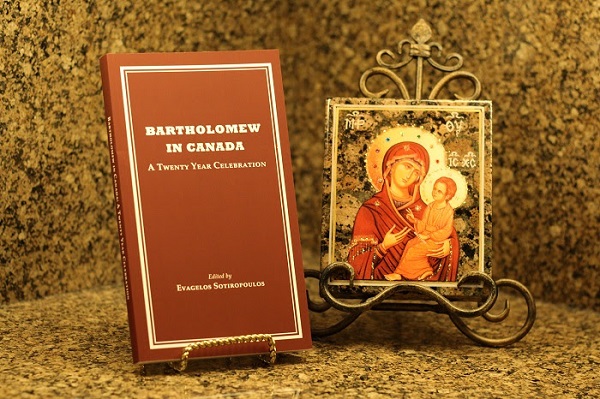
Twenty years ago today His All-Holiness Ecumenical Patriarch Bartholomew was in Canada. Twenty years ago today His All-Holiness presided over the Divine Liturgy at the old Maple Leaf Gardens in Toronto, Ontario. The Liturgy included 17 bishops, 70 priests, and 19,000 faithful. It was a day for those who were present have and will never forget. It was the high point of the Ecumenical Patriarch’s remarkable nine-day, eight-city trip to Canada. To celebrate this milestone anniversary of the Patriarch’s visit, the Ecumenical Patriarchate Archons in Canada, with the blessing of His Eminence Metropolitan Sotirios, developed and have published an edited volume of works under the title, Bartholomew in Canada: A Twenty Year Celebration. The book begins with a foreword by Metropolitan Sotirios and ...
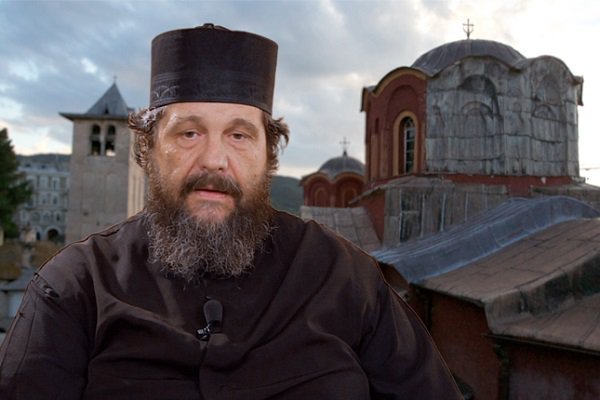
Fr. Nikolaos teaches Theology and Philosophy at the Orthodox Institute, Cambridge and at the Ecclesiastical Academy, Thessaloniki. He is well-acquainted with European thought and is one of the leading theologians in Greece. Interview with Yorgos Kiousis The real problem of our times isn’t atheism, but polytheism, which appears, in fact, in the form of idolatry. This creates a danger, because, in the place of Christ, the loving and sacrificed God, we set the bellowing monster of our narcissistic fabrications concerning power and domination. How do people today experience the event of Easter? Beyond the emotional and festal investment, there’s also an astonishing existential revelation: that God descended into the condition of my chaos and irrationality, loving me, at the expense of being crucified by ...

Callous people are stupid philosophers. They explain God’s will to their own condemnation. They’re blind and they teach others how to see. They praise silence and laud it with loquacity. They teach meekness and often become angry while doing so. They praise prayer and avoid it like the plague.
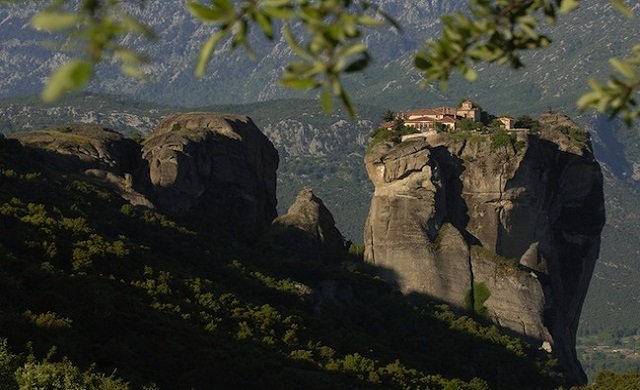
The Grace which comes from repentance snatches up the soul and wings it towards God, Whose light attracts it. At the beginning, He isn’t so apparent, but His warmth, which is love, starts to soften the heart. Then, strangely, a dichotomy appears in people. On the one hand, they’re overcome with fear, or rather horror, at their dreadful sinfulness; and on the other, they’re overwhelmed by the grace of God’s hitherto unknown presence. The fear side of the dichotomy is superfluous, because, with the presence of Grace, the eyes of the mind are opened and it sees for itself its defilement.

Unawareness of lack of the virtues is a downward slide into impiety. Because those who are accustomed to the pleasures of the flesh and disobedience to God will end up denying Him when the opportunity arises and will prefer the life of the flesh to Him. They’ll believe that the pleasures are more important than God.
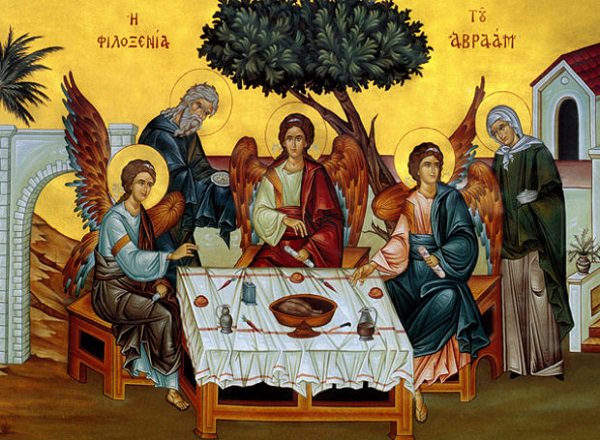
‘And He said this about the Spirit’ On the last day of the Feast of the Tabernacles, Christ revealed that He Himself is the source of life. Because people were about to leave to go back home, Christ’s words were ‘provisions’ for their salvation. The Lord said that those who are thirsty should come to Him and rivers of living water will flow from their bellies (Jn. 7, 38). The word ‘belly’ here means ‘heart’. Clearly the water is the Grace of the Holy Spirit. The Lord is the ever-flowing source of the grace of the Holy Spirit. When the Holy Spirit comes to settle in our heart, His gifts and abilities constantly well up. As He said to the Samaritan ...
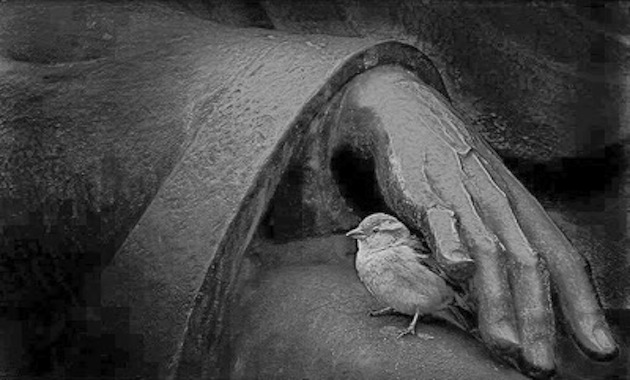
Say the prayer internally, with the mind, not with the lips, so that there’s no distraction, with your mind going all over the place. We should place Christ gently in our mind, saying ‘Lord Jesus Christ, have mercy upon me’, very gently. Nothing else. Nothing. Don’t think of anything except the words: ‘Lord Jesus Christ, have mercy upon me’. Turn to Christ calmly, with attention and devotion, with open eyes, so that you’re in no danger from fantasies and illusions. Say the prayer gently, not all the time, but whenever you’re disposed to do so and when you feel compunction, which is a gift of divine grace. Without grace, you’re hypnotizing yourself and you may descend into lights and delusions ...
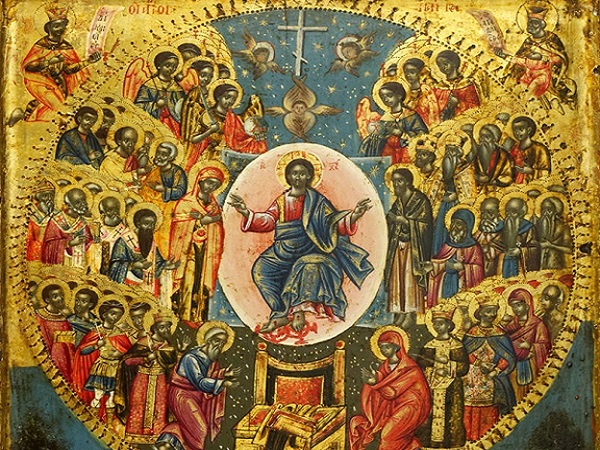
The lives of the saints are the ‘Gospel in action’, according to the modern Serbian saint, Justin Popović. Through them, we see their struggles and strivings, their longing and their love, their blessings and grace. We realize that the Word of God is attainable, though applying it seems difficult. However, if one person has managed to do something difficult, this means that others can do so, too. It’s nevertheless the case that, when we read about the ascesis they performed, we’re tempted to wonder whether it is all true. Because, for us today, with the comforts and the relaxed attitudes which characterize us, we think that such ascesis is excessive, if not impossible. How did they manage it? I think that, if ...

Gossip is condemnation, it’s slander. Gossips are people who condemn and slander their neighbours and take away their honour in the same way as a murderer takes away their life. Both of them are guilty of manslaughter.
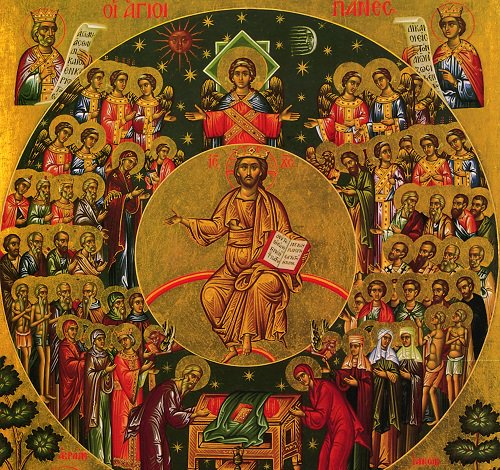
But let’s not merely listen to what’s been said, that is that there were hot coals below the wounded bodies, but let’s think how we feel when we suddenly come down with a fever. We think that life’s unbearable, we’re upset, we fret, we gripe like little children, as if the heat of the fever’s as bad as that of hell. The martyrs, though, didn’t have a fever and even though they were surrounded by flames and the sparks were flying over their wounds and eating into their lacerations more viciously than any wild animal, they were adamantine and seemed as if they were watching this happening to other people’s bodies. With the bravery and boldness that became them, they ...

Nothing’s difficult when we want to do it and nothing’s easy when we don’t. We should show our faith in Christ not only in words, but also in deeds, so that we don’t bring shame on our dogma through evil deeds. Everything we do should contribute to our praise for God.
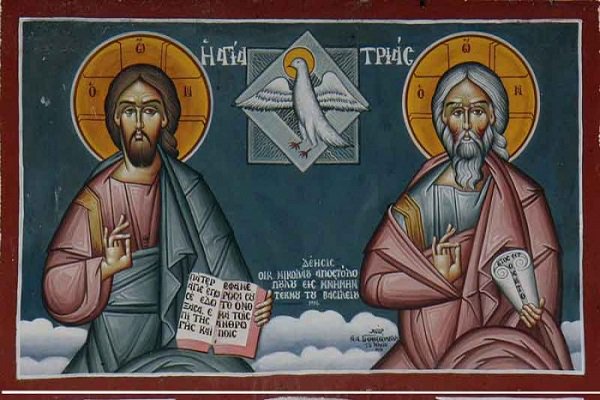
1. The period before Easter, which the Church calls Great Lent, culminating in Great Week, is a time of struggle against sin and the contrary spirit. It’s an education in dying to whatever estranges us from ourselves, our neighbours, the whole of creation and, in the end, God. And if this happens, that is if we strive as the Church instructs us, then we find our heart, which, by itself, has the sense of God. From this sense also flows our feelings towards our neighbour, ourselves and the rest of creation. This learning process is painful. It’s being buried with Christ and is carried out for the gift of the greater resurrection which Christ has promised and given us. 2. On ...

We live this life forever enslaved to material things, but the angels don’t. This life was given to us so that we might learn about the life eternal, learn how we can become free, how we can progress freely, with a clear conscience and pure thoughts. When we’re free, there’s no spiritual warfare- victory is ours, because we’ve abandoned ourselves to God. It’s He Who orders our lives and we accept whatever happens to us as if He were giving us His hand.

Christ was transfigured on Mount Tabor. According to the holy Fathers, He thus made it clear to us that if we want to experience the mysteries of divine Grace, we have to abandon the cares of the world. Our mind must separate itself from the things of this world, leave them behind and concentrate on the things above. The Lord shows us that we can become by Grace what He is by nature.
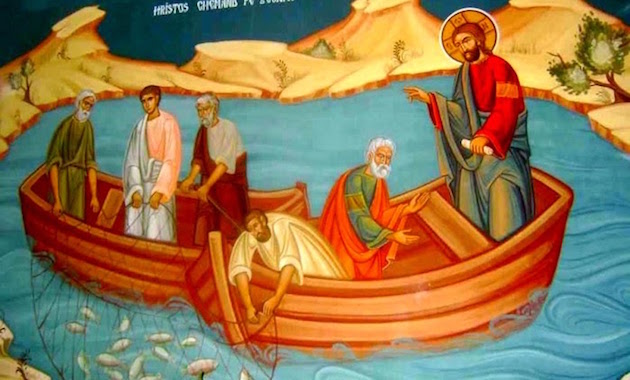
In this world, son, people are divided into good and bad, rich and poor, educated and uneducated, polite and rude, clever and stupid. But they all have one thing in common: pain. When you’re in pain, son, gather all your spiritual powers and try to understand the purpose of the pain, because through it God’s opening the heavens to you. Do you think that He Who numbers the hairs on your head doesn’t know the measure of your pain? He does. So rest assured in our heavenly Father. Don’t be disheartened. Together with Christ, you’ll get through everything, because you’ll become His heir, in the infinite riches of our common Father. Amen.

If you want somebody to understand you, you have to become like them. This is what God did: He became human, spoke like us, interacted with us on all human levels- except sin- and so was able to communicate with us fully. So Christ came to save us and didn’t merely meet us as we are, but did something more: He gave Himself that we might live. In other words, He gave up everything He had and sacrificed Himself.
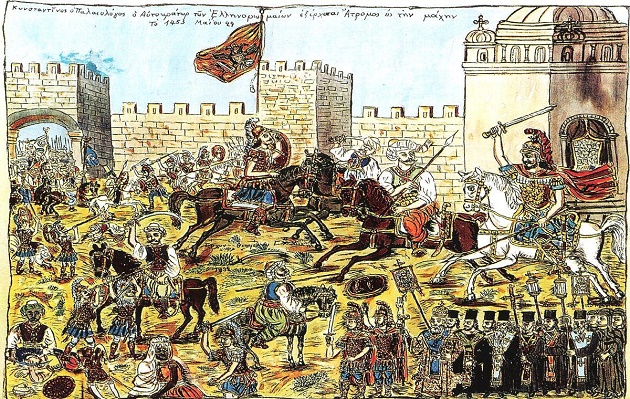
Today (May 29), the Orthodox Church remembers the Fall of Constantinople, the Queen of Cities, in 1453. Named after Saint Constantine the Great, Constantinople was the capital of the Byzantine Empire (330-1453). Although Byzantium’s vast power spanned 11 centuries, its story is often held hidden. In his 2006 book, “Sailing from Byzantium: How a Lost Empire Shaped the World,” Colin Wells describes it as: The successor of Greece and Rome, this magnificent empire bridged the ancient and modern worlds for more than a thousand years. Without Byzantium, the works of Homer and Herodotus, Plato and Aristotle, Sophocles and Aeschylus, would never have survived. Yet very few of us have any idea of the enormous debt we owe them. More than just the cultural, ...
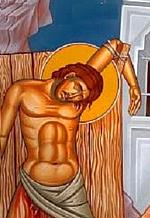
The new martyr Nannos/Ioannis belongs to the Macedonian new martyrs. He was martyred in Smyrna in 1802 when he was only 17 years old. He was born in Thessaloniki of Macedonian parents. His father came from the village of Avret-Issar, nowadays old Yinaikokastro in the prefecture of Kilkis, a mere 30 kilometres to the north of Thessaloniki and his mother in the village of Lokovi, today’s Taxiarhis, in Halkidiki. They became acquainted in Thessaloniki, where they both lived, created a family and had two boys, the elder, Theodoros, and the younger, Ioannis, whose pet name was Nannos in order to distinguish him from his father, who was also Ioannis. The family was Greek and Orthodox, God-fearing and believing in Christ, values ...